Hyundai Motor’s labour union will hold strikes tomorrow and Friday, adding to mounting political tensions. South Korea’s Metal Workers’ Union threatens a full strike unless President Yoon Suk Yeol resigns after a Martial Law controversy.
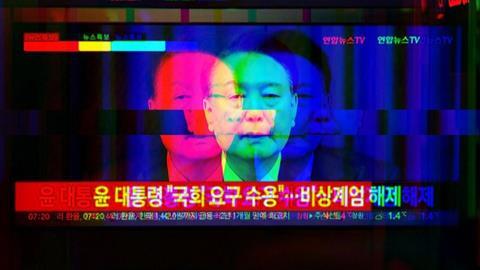
South Korea’s political and industrial unrest deepened as Hyundai Motor’s labour union announced plans for strikes on Thursday and Friday. The union, part of the influential Metal Workers’ Union, will halt work for four hours each day, a spokesperson confirmed.
Adding to the turmoil, the Metal Workers’ Union has threatened to escalate its action into a nationwide strike next week unless President Yoon Suk Yeol steps down. According to Yonhap news agency, this development marks a critical juncture in the escalating confrontation between organised labour and the government.
“Hyundai Motor, South Korea’s largest automaker, plays a critical role in the national economy”
The calls for Yoon’s resignation follow a controversial sequence of events. The president declared Martial Law yesterday (3 December, 2024), citing national security concerns, only to provisionally revoke the order within hours amid fierce backlash. Opposition politicians are now seeking his impeachment, accusing him of destabilising the nation through what they describe as reckless governance, but disquietude for regional automotive production and supply chains have become glaringly clear.
South Korean labour unrest meets political turmoil
Union’s have a history of impact on automotive production, most notably, recently in North America. And the Hyundai Motor union’s decision to strike reflects broader discontent among South Korea’s workers. The Metal Workers’ Union, which represents employees across various industries including automotive, wields significant influence. Its participation in political demands for Yoon’s resignation underscores the urgency of the crisis. The union’s spokesperson declined to comment on specific strike objectives related to Hyundai’s operations but affirmed solidarity with the wider labour movement.
“This is not just a labour issue; it reflects a wider crisis of governance and public trust”
- Professor Kim Jae-hyun, political economist, Seoul National University
South Korea’s Yonhap news agency reported that union leaders are coordinating efforts for next week’s potential full-scale strike, which would amplify pressure on Yoon’s administration. Such an event could disrupt production across key industries and exacerbate economic uncertainties.
Automotive production and economic stakes at play in South Korea
Hyundai Motor, South Korea’s largest automaker, plays a critical role in the national economy. Any prolonged industrial action could have significant repercussions for domestic production and export schedules. While Hyundai has yet to issue a formal response to the strike plans, analysts warn that escalating labour unrest could threaten its supply chains. “This is not just a labour issue; it reflects a wider crisis of governance and public trust,” said Professor Kim Jae-hyun, a political economist at Seoul National University.
Snapshot: South Korean labour movements and automotive production
In the past, the South Korean metal workers’ strikes have significantly disrupted automotive production in the country. In July 2024, approximately 60,000 members of the Korean Metal Workers’ Union (KMWU) participated in an eight-hour strike, impacting the production of cars, ships, and steel products nationwide.
The automotive sector was notably affected:
-
Hyundai Motor: While the company’s primary union did not join the July strike due to a tentative wage agreement, workers from its subcontractors participated, leading to production line suspensions in Ulsan because of disrupted component supplies.
-
Kia: The strike affected Kia’s Gwangju factory, disrupting two of its three production lines.
-
GM Korea: Unionised workers joined the KMWU’s action, continuing their strike over multiple days.
-
Hyundai Transys: In November 2024, a prolonged strike by auto parts workers at Hyundai Transys, a key supplier of transmissions to Hyundai Motor and Kia, further impacted the automotive industry. The month-long strike led to the production loss of around 150,000 transmissions, causing Hyundai Motor to halt production lines at its Ulsan plant and affecting models like the Kona SUV and Ioniq 5 electric vehicle.
The interconnectedness of South Korea’s automotive labour movements, production, and supply chains are clear. Labour actions, whether of metal workers or other automotive parts suppliers, can swiftly disrupt vehicle assembly lines, leading to significant production delays and financial repercussions for automakers.
The threat of strikes is anticipated to hold political sway due to the sheer gravitas that OEMs have for economies.
Fallout: The state of South Korea’s automotive production
Yoon’s declaration of martial law, even if short-lived, has left the administration, as and potentially, the state of automotive in the region in turmoil, if not under deep uncertainty. The measure, which would have temporarily placed the military in control of civil order, sparked widespread condemnation, among both civil society, labour movements, and automotive producers. Critics argue the move was a disproportionate response to internal unrest and a reflection of Yoon’s increasingly embattled leadership.
Read more Hyundai Kia stories
- Hyundai Kia’s ‘Wearable Robot’ with vehicle production applications
- Korean consortium aims to revamp EV battery production
- Ford, GM, Stellantis fight EV slowdown, tariffs, IRA & China
- ASEAN: Chinese OEMs increase investment through EV production
The president’s swift reversal of the order did little to quell public anger, and could have a lasting effect on confidence regarding automotive produciton and supply chains. The reversal has further emboldened opposition politicians and grassroots movements to call for the Presidents immediate resignation.
The union strikes come at a time of heightened tension in South Korea. Analysts note that the convergence of political instability and industrial action could have lasting consequences for the country’s economy and governance. As Hyundai workers prepare to down tools and the Metal Workers’ Union rallies its members, the pressure on Yoon’s administration is set to intensify. Whether the president can navigate this crisis without further upheaval remains uncertain.






























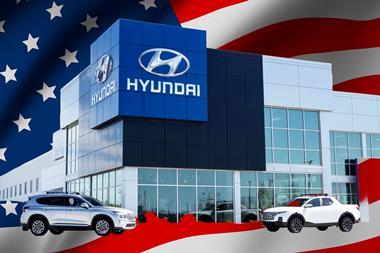
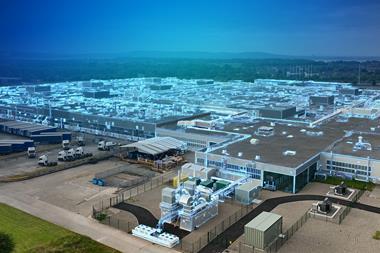
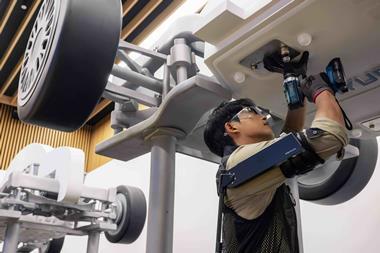
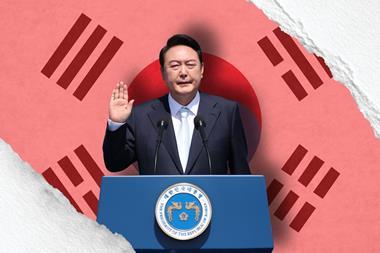
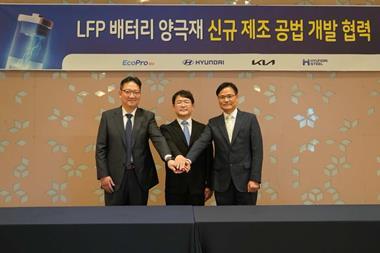



No comments yet